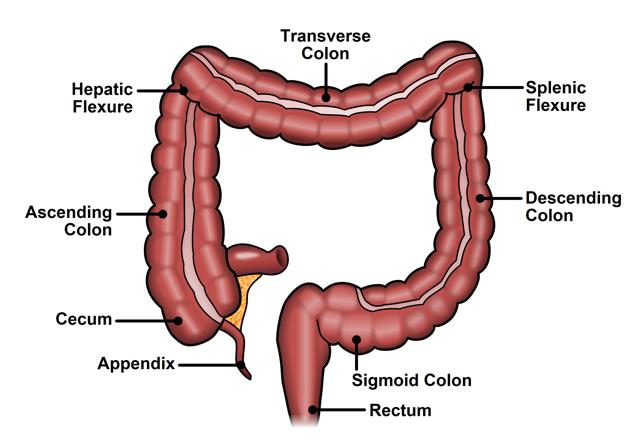What does the large bowel do?
In this article, we describe what does the large bowel do.
The large bowel, also known as the large intestine, or colon. It is a long, tube-like organ that is connected to the small bowel (intestine) at one end and the anus at the other. The large intestine has four parts: caecum, colon, rectum, and anal canal.
The large bowel is 6 feet long and three inches wide. Whereas the small bowel is about 22 feet (more than 3x your height), and one inch wide.
1. Absorption of water and electrolytes – the large bowel absorbs water and electrolytes (such as sodium and potassium) from the remaining material that enters it from the small intestine. This process results in the formation of solid faeces.
2. Storage and elimination of faeces – the large bowel stores faeces until they can be eliminated from the body through the rectum and anus during a bowel movement.

3. Bacterial fermentation of undigested material – the large bowel is home to over 500 species of beneficial bacteria, which help to ferment undigested food particles that were not absorbed in the small intestine. This fermentation process produces vitamins such as vitamin K and B vitamins, which can be absorbed by the body.
4. Immune function – the large bowel contains immune cells that help to protect the body from harmful bacteria and other pathogens that may be present in the gut.
Relationship with nervous system
Researchers now believe that the network of interconnected nerve cells lining the large intestine has a key role to play in food intake and its digestion. This enteric nervous system is now often referred to as the ‘second brain’.
It is capable of directing messages to the brain as well as controlling the release of hormones that influence the movement of food down the gut, feelings of wellbeing and the sensations of being hungry or of being full.
Overall, the large bowel plays a crucial role in the digestion and absorption of nutrients, the elimination of waste, and the maintenance of a healthy gut microbiome.
Summary
We have explained what does the large bowel do. We hope it is clearer now.

